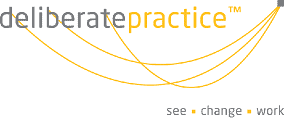01/12/2014
 2014 is drawing to a close and it is a time when some may be asking how satisfied they are with their careers? While the GFC may be long behind us chronologically, the labour market is yet to fully recover. This may explain why so many are currently feeling uncertain and/or dissatisfied with their careers.
2014 is drawing to a close and it is a time when some may be asking how satisfied they are with their careers? While the GFC may be long behind us chronologically, the labour market is yet to fully recover. This may explain why so many are currently feeling uncertain and/or dissatisfied with their careers.
The summer holidays are looming and for many this is a time to wind-down on beaches and other places where relaxation and forgetting about life’s stresses become the main priorities. This is also a time to reflect on the year just gone and the one ahead. This reflection can prompt some to make a resolution to change jobs perhaps inspired by a bad boss; lack of career opportunities; boredom or monotonous routine; or a feeling of not being valued financially or otherwise. Some will act hastily on their resolution and hit the job market often without a well thought-out and written plan, possibly to their detriment. This blog explores several proven and sure fire ways of getting back on the path towards career satisfaction and highlights that it might not be as hard as you may think.
Some will act hastily on their resolution and hit the job market
Career satisfaction is important to both individuals and organisations. Research points to a clear link between career development, job and employer satisfaction with employee engagement, work performance and retention. Moreover, every individual has a right to career satisfaction and every organisation has the opportunity to guide and facilitate it. Career development and the pursuit of career satisfaction combined with building positive, effective employer and employee relationships are almost universally recognised as the key building blocks of individual and organisational success.
The employment market has never been more complex, offering a myriad of choices and opportunities. For some this is confronting, if not overwhelming, particularly when you consider that in the new reality some will transition through up to 5 careers and 20 jobs in their lifetime. It has also been postured that if your job can be automated it is very likely that it won’t exist in 5 years! The uncertainty of knowing whether you are making the right career decisions is perplexing for many. On top of this, there seems to be so many other things to consider like work life balance, remuneration, satisfaction, values fit and career development, just to name a few. Does this sound familiar?
Fortunately there is a solution – effective strategic career planning. Think of it this way – your boss would understandably be concerned if when asked for your business plan, you responded that you didn’t have one, rather opting to make it up as you went along and leaving much to chance! And yet many do exactly this with their careers.
It’s your career and you are entitled to career satisfaction
Think of your career and career planning as making choices; not leaving it to chances, where you can influence, manage and direct the controllable elements. Applying conventional strategic planning methodologies to careers works well. Doing so, ensures we define our career objectives and milestones, and that we consider how we are going to achieve them by identifying target markets, devising an overall marketing strategy with short and long term timelines, milestones and specific action plans. No strategic plan would be complete without also identifying key career derailers with appropriate mitigation strategies. Planning for ‘navigational change’ helps to mitigate those risks and importantly capitalise on those unexpected events that appear from time to time in our careers. Examples of where we may need to revise career plans include, changing government policies, a new boss, a shift in the economic environment, a performance review that holds a surprise, a new role with new responsibilities, organisational restructuring, or you haven’t reviewed your career plan in 2 years.
Self-assessment is a great place to start in preparing your plan. Individuals that take the time to achieve heightened levels of self-awareness often get the best results. When you are able to clearly articulate who you are, you are better able to effectively research and identify suitable opportunities and make better career decisions in the pursuit of career satisfaction. Your plan will also need to consider marketing yourself to your target audience together with identifying, building and nurturing your networks.
A well researched and proven approach to strategic career planning and long term career development typically has 2 key components.
These are:
1. Exploring & Discovering
- Contextual considerations
- Self Assessment
- Research
- SMART goal setting.
and
2. Implementation
- Action planning including allowance for navigational change
- Employability and enterprise skill development
- Self-marketing and building your personal brand
- Ongoing review, evaluation and adjustment of your plan
It is vital to remember that your plan is not a plan unless it is written down, so commit your career plan to paper. It’s your career and you are entitled to career satisfaction – so why not start planning today?



